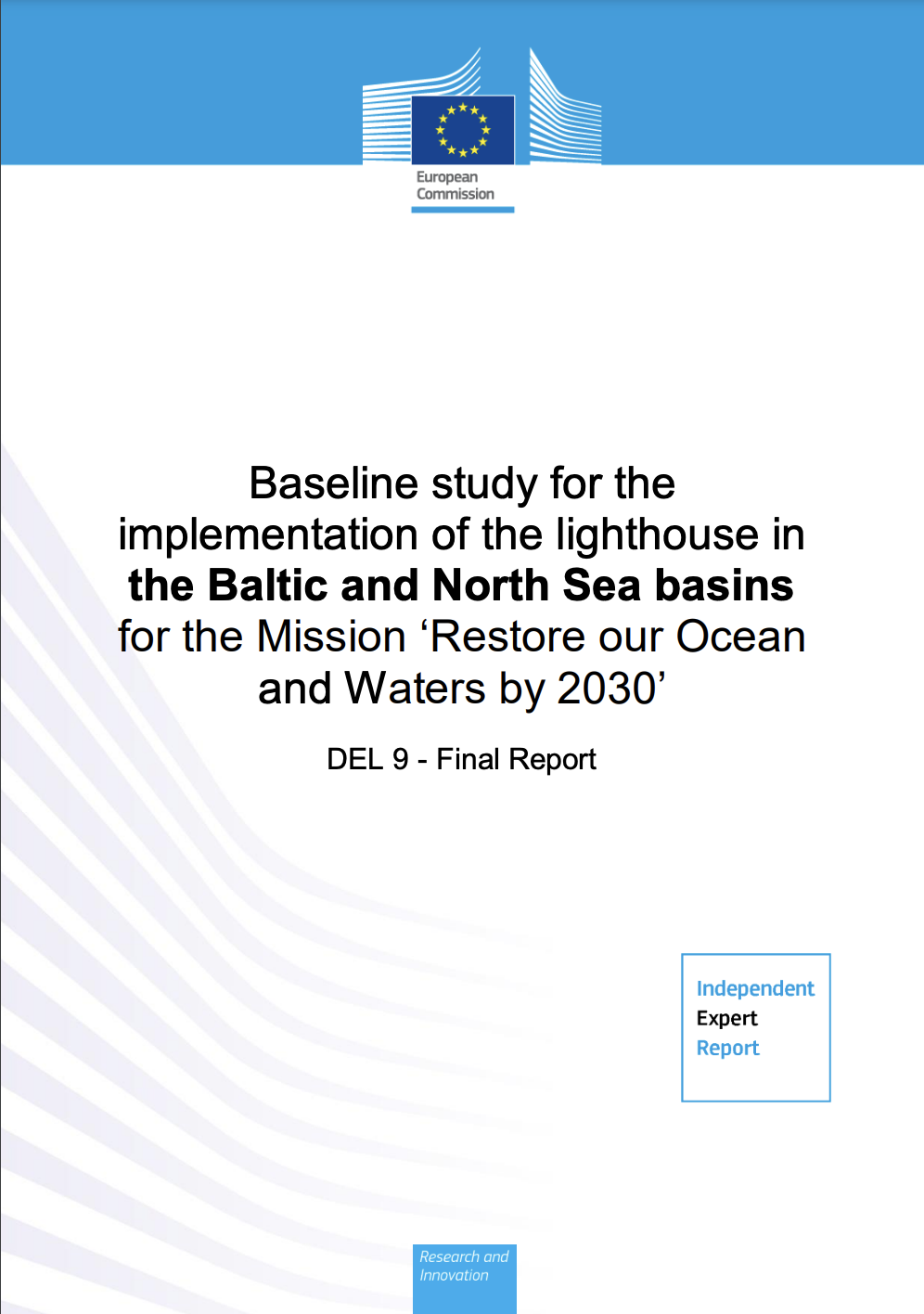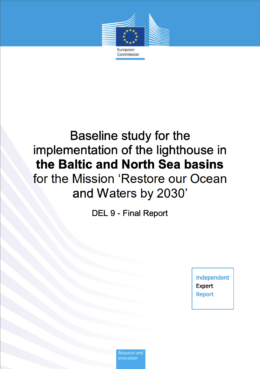Baseline study for the implementation of the lighthouse in the Baltic and North Sea basins for the Mission ‘Restore our ocean and waters by 2030’
Fecha de publicación: 16 marzo 2023 | Idioma del informe EN
This baseline study aims to provide a comprehensive baseline and basis for the implementation of The Baltic Sea and The North Sea lighthouse and its scale-up in the future within the EU Mission “Protect our Ocean and waters by 2030”. Its purpose, in line with the Mission Implementation Plan, was to provide a baseline for the implementation of the Baltic and North Sea basin lighthouse, which focuses on the implementation of objective 3 of the Mission “Make the sustainable Blue economy carbon neutral and circular”.
The baseline study entails mapping the situation in the lighthouse area in 2021-22 with respect to the respective Mission objective, targets and activities. For each sea basin, a general data-based and descriptive overview was provided in terms of geography, demographics and socio-economic situation, information on governance and administration, and an analysis of regional disparities has been performed, related to the differences in the socio-economic performance of the regions in each lighthouse area, as well as the differences in the performance and connectedness of the research and innovation (R&I) ecosystems to European counterparts
Furthermore, the study covers zero emission marine technologies and solutions, supporting technological solutions for ports (and infrastructure), offshore renewable energy facilities (but also coastal onshore infrastructure), and applied solutions for multi-use of water space (such as multipurpose platforms and aquaculture). The study also proposes indicators for measuring Mission progress in these areas during its implementation.
Moreover, the study mapped stakeholders and networks relevant to the implementation of the Mission objective, including a comprehensive mapping of past, ongoing and future key EU and national projects in the lighthouse area relevant to the Mission objective and activities. The study mapped current governance mechanisms (incl. regional, national and macroregional strategies and plans, but also National Recovery and Resilience Plans (RRPs) and their alignment with Mission objectives.
The study also analysed the S3 Smart Specialisation Strategies and other regional strategies in the lighthouse analysing the synergies with the Mission objectives and activities and providing recommendations for their alignment with the new S4+ framework for sustainable and inclusive growth linking smart specialisation and mission-oriented policy for sustainable development.
The study furthermore investigated and mapped citizen engagement and literacy activities in the lighthouse areas.
The study methodology comprised a multitude of methods such as desk research, data analyses using various open databases, case studies, surveys and stakeholder interviews.
The study also offers recommendations for further implementation of the Mission in the areas covered by the study. The results will feed into activities to implement the Mission, such as the Mission Implementation Platform and the Coordination and Support Actions (CSAs) in the respective lighthouses.






